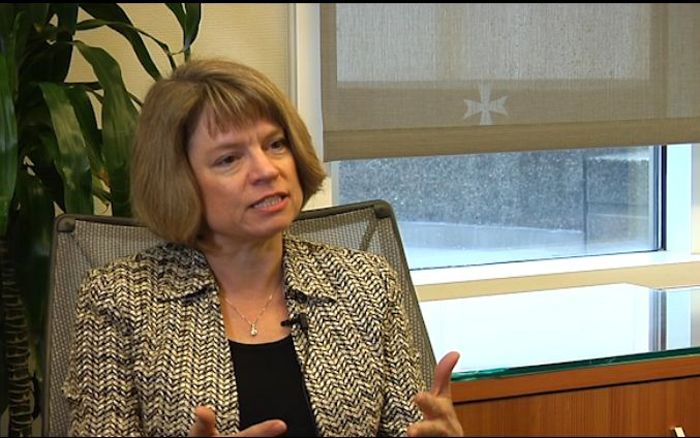What Holds Back Women Research Faculty?

This ScienceLives article was provided to LiveScience in partnership with the National Science Foundation.
Having children forced Professor Donna Ginther to better focus on her work and to budget time wisely. It also gave the University of Kansas economics researcher first-hand experience with being a mother in a rigorous, mostly male, academic environment. Because she had a vested interest, Ginther began to study the gender makeup of U.S. research scientists to better understand the barriers women face in training for and staying in research careers.
All things being equal, hiring and pay of Ph.D. scientists should be regulated by free market forces, according to Ginther. Equally productive workers should be hired and paid the same regardless of, say, gender or race. But employment surveys of academic researchers have long revealed a paucity of women and racial minorities among their ranks, particularly at senior levels, indicating something else is at play.
In search of an explanation for these trends, Ginther found herself sorting through disparate sets of data that seemed impossible to link or combine to reveal the big picture. In 2004, a month after her first child was born, she began a campaign to standardize information on these issues so that it could be shared and explored, and to match U.S. patent and publication records to doctoral employment data from the National Science Foundation (NSF) Survey of Doctorate Recipients. These data have given researchers better tools to address important research and policy questions about participation in the science and technology enterprise.
"Data are king," she says. "When we're not able to efficiently share scientific data, it impedes our understanding of the determinants of economic growth, technological advancement and all kinds of societal benefits."
For its part, NSF's National Center for Science and Engineering Statistics has been working to create the linked database, despite several confidentiality and proprietary challenges. The updated database will allow Ginther to shine a brighter light on what roles gender, race and ethnicity play in academic career advancement, and give social scientists a more fine-grained picture of U.S. innovation and entrepreneurship.
Ginther's career path has been anything but direct. Her interests have taken her all over the country (sometimes on the back of a motorcycle), from Atlanta to Seattle and the Midwest. After receiving her doctorate at the University of Wisconsin-Madison, Ginther held academic positions at Southern Methodist University and the University of Washington. She is currently director of the Center for Science Technology and Economic Policy at KU, where she chairs the Faculty Compensation Committee, and has created and implemented policies for faculty engaged in family caregiving responsibilities.
Sign up for the Live Science daily newsletter now
Get the world’s most fascinating discoveries delivered straight to your inbox.
Name: Donna K. Ginther Institution: University of Kansas, Lawrence Field of Study: Labor economics, workforce demographics
Editor's Note: The researchers depicted in ScienceLives articles have been supported by the National Science Foundation, the federal agency charged with funding basic research and education across all fields of science and engineering. Any opinions, findings, and conclusions or recommendations expressed in this material are those of the author and do not necessarily reflect the views of the National Science Foundation. See the ScienceLives archive.













